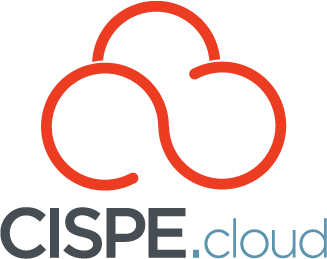Fair competition and inclusive public tenders
Francisco Mingorance, secretary-general, CISPE
Last week I was honoured to speak at a Brussels event launching a new study presented by ‘La Nube’ an organisation which campaigns to promote a fair and favourable context for the adoption of cloud technologies in Spain. The initiative is supported by Asociación Española de Startups, the Spanish Start-Ups Association– which represents more than 500 innovative businesses. The full study is available in Spanish here, but I thought it worth highlighting some of the key findings for a wider audience.
Written by economist Professor José Moisés Martín the study provides an in-depth analysis of Spain’s cloud ecosystem and its impact on the wider start-up market. It also identifies potential opportunities and risks for the development of Spain’s cloud ecosystem.
The findings are quite clear: fair access to cloud infrastructures and services is an essential prerequisite for the development of the entrepreneurial ecosystem in Spain and beyond.
Yet, the adoption of cloud technologies in Spain lags the European average. Spanish companies are ten points behind their European counterparts in the contracting of cloud services, which is a serious disadvantage for their competitiveness and for the growth in Spain of a dynamic cloud ecosystem.
The study also identifies a significant upside. Just raising the adoption of cloud services to the European average could lead to the creation of 324,000 new jobs in Spain and add 1.3% to GDP growth by 2030.
But to achieve this it is necessary to address unfair behaviours in the cloud market which include the tying and bundling of software with cloud infrastructures of services held by a handful of legacy software providers. As the report notes, the choice is essential for the nascent entrepreneurial economy Spain seeks to encourage. The author says:
“Since its inception as an efficient data storage solution, cloud computing has rapidly evolved into a plethora of products and platforms to generate data and innovative approaches to harness its potential. These approaches have given rise to a nascent start-up industry linked to cloud services. The choice of service and provider is of paramount importance to ensure that customers get the best possible product for their needs as they embark on their digital transition. But since this need for custom solutions will continue to exist even in a fully cloud-native world, it’s important to preserve the competitive dynamics of this relatively young industry.”
As with previous research by Professor Jenny, conducted for CISPE and cited by Nubes, the Spanish study outlines practices that integrated cloud service providers with dominant positions in the software market adjacent to cloud infrastructure can use to limit competition between cloud infrastructure service providers, to the detriment of customers.
For Spain’s digital economy and its start-up ecosystem to fulfil their potential, these unfair licensing practices must be halted. CISPE, working with AES and others, launched last September in Madrid the Ten Principles for Fair Software Licensing to discourage these unfair and damaging practices. We urge anyone concerned by the findings of La Nube’s study to use the Ten Principles for Fair Software Licensing as the basis to prevent further market distortions, lock-ins and removal of choice in software and cloud infrastructures for both start-ups and the public sector.
